Thursday October 1st was Nigeria’s Independence Day and it wasn’t just any Independence Day, Nigeria turned 60! A whole 60 years. 60 is what’s called a diamond jubilee for those interested in such things. By definition, independence speaks to victory, coming into your own and the general belief that a person or country can now stand/survive on their own. However, beyond the excitement of attaining 60, which aspect of Nigerian life shows a steady 60-year progress? In other words, when celebrate Independence Day, independence from what? Does it feel like Nigeria and Nigerians are very independent right now?
Still, in the spirit of celebration, let’s go with what we’ve come to associate with Independence Day in Nigeria. A colleague who’s over 60 spoke about the good old days, painting a rather rosy picture of how enjoyable Independence Day used to be in Nigeria. This is understandable because it looked like people had good reasons to celebrate: great amenities, high standard of living, and they had hope of moving up in the world with quality education and so on.
Even in the not so distant past, October 1st was still a day to celebrate the country and being a Nigerian. Before insecurity and the fear of Boko Haram in parts of the country became a real threat, all kinds of events and parties were organised by citizens to enjoy the day. Businesses made effort to decorate their offices and shops with the Nigerian green and white colours. We also came to expect marches from school children, special broadcasts from the President and state governors, etc. Workshops/talk shops were also not in short supply (On the presidential broadcast, I’ll take a look and read between the lines of selected portions of President Buhari’s Independence Day speech later on).
However, I sense that many people were not in the mood to celebrate this Independence Day which just passed. It was day to ponder what it means to be Nigerian and the benefits of being Nigerian especially in these times. Understandably, such a sober reflection didn’t leave many happy. In fact, Nigerians abroad appeared to be more interested in the celebration. They were accused of celebrating Independence Day better than home-based Nigerians. A case of outsiders weeping more than the bereaved? More like ‘outsiders’ rejoicing more than the bonafide celebrants. Were these Diaspora Nigerians really celebrating their escape from Nigeria or imitating the robust Independence Day celebrations in other climes? As for me, in spite of plans to just go through the motions by watching some Independence Day-related programmes online, I found it difficult to muster enough enthusiasm.
Advertisement
In light of my personal lack of excitement, I wouldn’t have been surprised if our leaders had taken a decision to not mark October 1 in any ‘big’ way. I know we ought to be happy for what I’ll call the ‘at least’ factor: ‘At least, we are in a democratic government.’ ‘At least we are better than Chad.’ Or Niger. Or Sudan. There’s no shortage of poor countries to be better than. We know where to go for these kinds of comparisons. Still, the stats about Nigeria leave little to celebrate: World’s poverty capital after overtaking India. World’s capital for death of children under 5, again overtaking India. Do you know how mind boggling it is for a country of 200 million people (plus or minus) to overtake India with over 1 billion people as the country with the highest number of poor people? How many poor people do you need to beat a country of over a billion people? Let’s not talk about insecurity where we rank lower than some war-torn countries.
All this is pre-COVID-19. And as the pandemic lingers, while many countries were/are working tirelessly to make things a little easier for their citizens, Nigerians were being bombarded by all manner of taxes, increase in electricity tariff, fuel price hike. Ghana suspended electricity and water bills because of the pandemic. But Nigeria created a record for ‘e-feeding’ according to a joke being circulated online. According to Sadiya Umar Farouq, the minister for Humanitarian Affairs, Disaster Management and Social Development, her ministry spent N523.3m to feed kids in their homes, at the height of the COVID-19 lockdown in three states: Lagos, FCT and Ogun.
What about the national debt? In the first quarter of 2020, Nigeria used almost all of its earnings for debt servicing, over 90 per cent. Nigeria earned N950.56 billion and serviced its debts with N941.12 billion. But is there light at the end of the tunnel? It’s not so much the enormity of Nigeria’s challenges but the fear that we may not yet be tackling them competently.
Advertisement
- If Nigeria were a man…
Imagine if Nigeria were a man (and someone’s father) that turned 60. A father whose children are languishing in poverty not necessarily because he is poor but due to a lethal combination of mismanagement, incompetence and inexplicable arrogance. And at every turn, this father would tell his children how tough things are and how THEY need to tighten their belts…how they even have it better than their neighbour’s children, bla, bla, bla. Meanwhile, Baba would be living it up. How then will children of such a father celebrate his birthday at 60? In real life, there are fathers like these whose children, out of shame or religious obligation, ‘honour’ their fathers. Some go as far as getting into debt to give their fathers befitting birthdays/burials. But I’m not talking about these kinds of children who are the exceptions. Now, read excerpts from the presidential Independence Day broadcast against the backdrop of if Nigeria were a man…
- Unpacking President’s Buhari’s Independence Day Broadcast
It’s barely a week since Nigeria’s President Muhammadu Buhari delivered his Independence Day broadcast. Before this broadcast, even though it wasn’t with bated breath, I’d hoped for a really uplifting message from the President who’s regraded as the father of the nation. And like a real-life father, I gave myself a chance to hope that he would focus on comforting his traumatised children/citizens. For what it’s worth, the broadcast began well enough:
- At this stage in our nationhood it is important that we reflect how we got here to enable us work TOGETHER to get to where we aspire to be as a strong indivisible nation, united in hope and equal in opportunity.
- Sixty years of nationhood provides an opportunity to ask ourselves questions on the extent to which we have sustained the aspirations of our founding fathers. Where did we do the right things? Are we on course? If not where did we stray and how can we remedy and retrace our steps?
- We came out of the civil war with a focus on reconstruction, rehabilitation and reconciliation that enabled the country to put in place world class development structures and a strengthened public service that well served the government. This positive trajectory continued with a return to democratic government which was truncated by another round of military rule.
This statement (11) almost makes the other statement (9) a lie. We may have come out of the civil war with “a focus on reconstruction, rehabilitation and reconciliation” but that supposed “positive trajectory” didn’t do much for the losers of the civil war. We need to start acknowledging this if we are really serious about ‘remedying and retracing our steps.’ Who’s we anyway?
- Today, I am aware that our economy along with every single economy in the world is in crisis. We still face security challenges in parts of the country, while our society suffers from a high loss of moral rectitude which is driven by unbridled craving for political control.
Can any Nigerian politician say ‘unbridled craving for political control’ with a straight face? But I’m happy that the security challenges were (at least) acknowledged which is an improvement from the technical defeat of Boko Haram. In July, chief of Army staff, Lt. Gen. Tukur Buratai, informed President and Nigerians that insecurity was now under control. They’ve even had cause to declare that since 2015, security has never been better. Yet.
Advertisement
- An underlying cause of most of the problems we have faced as a nation is our consistent harping on artificially contrived fault-lines that we have harboured and allowed unnecessarily to fester.
- In addition, institutions such as civil service, police, the judiciary, the military all suffered from a general decline.
- We need to begin a sincere process of national healing and this anniversary presents a genuine opportunity to eliminate old and outworn perceptions that are always put to test in the lie they always are.
- The stereotype of thinking of ourselves as coming from one part of the country before seeing ourselves as Nigerians is a key starting point to project us on the road to our deserved nation’s evolution and integration.
In December 2018, the Nigerian Senate rejected the confirmation of 13 appointees nominated by President Buhari as Chairman and members of the Governing Boards of the Independent Corrupt Practices and Other Related Offences Commission (ICPC) and the Economic and Financial Crimes Commission (EFCC). According to an observation made by Senator Victor Ume, the South-East and South-South zones were left out while membership was skewed in favour of certain sections of the country. In March 2020, when the senate approved a $22.7b loan for the federal government, there was no project earmarked for the South-East.
Last week, a few days before Independence Day, there was agitation again in the Senate over the nomination of Aisha Umar as Director-General, DG, of the National Pension Commission, PenCom, by President Buhari. The Senators in disagreement led by Senator Enyinnaya Abaribe based their agitation on Section 20(1) and section 21(1) and (2) of the National Pension Commission Act 2014, which states, “In the event of a vacancy, the President shall appoint replacement from the geopolitical zone of the immediate past member that vacated office to complete the remaining tenure.” The immediate past DG, Chinelo Anohu-Amazu is from the South-East while nominee Aisha Umar is from the North-East.
I could go on but I’m fairly confident that you do get the drift. That there are no “artificially contrived fault-lines.” They’re real fault-lines seemingly carved in concrete. They’re definitely not “outworn.” But what does (18) really mean: “The stereotype of thinking of ourselves as coming from one part of the country before seeing ourselves as Nigerians is a key starting point to project us on the road to our deserved nation’s evolution and integration.” Does this mean that the stereotype of thinking ourselves as coming from one part of Nigeria, like tribalism, is what Nigeria needs to evolve? Ayam not understanding!
- The recent build-up and eventual outcome of the Edo State elections should encourage Nigerians that it is my commitment to bequeath to this country processes and procedures that would guarantee that the people’s votes count.
In 2019 before the election in Edo State (September 2020), there was Osun. Ekiti. Kogi. So bad the US had to issue visa restrictions to some politicians that were part of that rape of democracy. But let’s thank God for Edo. And also pray that Edo doesn’t become another Imo state. Still. #EdoNoBeLagos.
Advertisement
- The problems with our electoral process are mainly human induced as desperate desire for power leads to desperate attempts to gain power and office.
Just like (14), who is that Nigerian politician that hasn’t fought tooth and nail to gain power?
- Democracy, the world over and as I am pursuing in Nigeria, recognizes the power of the people. However, if some constituencies choose to bargain off their power, they should be prepared for denial of their rights.
After 28 & 29, it was not necessary to add No. 30. In fact, the whole speech could’ve ended here and made for a heart-warming message of hope and call to unity on Independence Day. This statement (30) generated heated debate. I can’t claim to fully understand its construction. Reads like some part of it was removed or is the public supposed to be privy to some coded information? Who’s bargaining off their power? And to whom? And why is one who’s pursuing democracy (hope he catches up) turn around to tell the same people whose power he recognizes to be prepared for the denial of their rights?
Advertisement
- No government in the past did what we are doing with such scarce resources. We have managed to keep things going in spite of the disproportionate spending on security. Those in the previous Governments from 1999 – 2015 who presided over the near destruction of the country have now the impudence to attempt to criticize our efforts.
As I said, the broadcast could’ve ended at No. 29. But to be fair, the speech writer (s) could only hold on for so long. And presumably, these are the same people who respond on behalf of the government with a ‘go to hell’ tone. First you say democracy recognizes the power of the people. Then when we scratch the surface, you denigrate a generation of Nigerians for having the effrontery to criticise your wonderful efforts. Meanwhile, there are many people in previous governments from 1999-2015 that are in this current government.
- In the circumstances, a responsible government must face realities and take tough decisions.
If the ‘tough decisions’ only affect the citizens and not the leaders, they’re not so tough. Downsize the presidential fleet. Cut down spending in the Villa. Cut down legislators’ allowances. Mandate political office holders to stop medical tourism, etc. Then let’s talk about tough decisions.
Advertisement
- Petroleum prices in Nigeria are to be adjusted. We sell now at N161 per litre. A comparison with our neighbours will illustrate the point;
- Chad which is an oil producing country charges N362 per litre
- Niger, also an oil producing country sells 1 litre at N346.
- In Ghana, another oil producing country, petroleum pump price is N326 per litre.
- Further afield, Egypt charges N211 per litre. Saudi Arabia charges N168 per litre. It makes no sense for oil to be cheaper in Nigeria than in Saudi Arabia.
“Petroleum prices in Nigeria are to be adjusted. We sell now at N161 per litre.” Does this mean petroleum prices are still going up? When did we begin to compare ourselves to Chad and Niger and do we want to emulate Chad and Niger? Do Chad and Nigeria have the equivalent of Aso Rock and associated luxury? Perhaps we should match our leaders’ lifestyle to theirs? Ghana provided free electricity and water for its citizens to reduce their stress from the pandemic. Why aren’t we clamouring for a J.J Rawlings moment? In 1979, then Flight Lt. Jerry John Rawlings was involved in the execution of military officers, including Generals Kotei, Joy Amedume, Roger Felli, and Utuka, as well as the 3 former heads of state, Afrifa, Acheampong, and Akuffo.
In any case, why are we always so selective with comparisons? Ghana, at least Accra, has 24 hours electricity, has better security, roads and other amenities. Wwho had the (not so) bright idea to include Saudi Arabia in this Independence Day flogging? Is it because our elected and selected leaders live like they’re in Saudi Arabia? As many have pointed out, all you have to do is compare the minimum wage of Nigeria and Saudi Arabia. Saudi Arabia’s minimum wage is 3000 Riyal which is about N305,805 while Nigeria’s disputed minimum wage is N30, 000 and not all states can pay. Anyone earning a minimum wage of N300k would gladly pay N168 for petrol. Let’s not compare the standard of living in Saudi Arabia with that of Nigeria. Yet the two are both oil producing countries. Should we blame those Nigerians who have been involved with the petroleum ministry in one capacity or the other since the 70s?
Advertisement
- It is my sincere hope that by the end of this anniversary on September 30th 2021, we will all be proud of taking this individual and collective self-assessment for the progress of our great Nation.
Did I miss the part where the President elaborated on his own self-assessment and what steps he was going to be taking?
FILM FESTIVAL NEWS
- London Film Festival-October 7-18
The 64th BFI London Film Festival (LFF) opens today and runs till October 18. One of the events planned are series of screen talks in partnership with American Express which the organisers think will give “audiences a rare and unique opportunity to learn about the careers and craftsmanship of these renowned creators in a virtual setting.”
As part of these Screen Talks, renowned actor and filmmaker George Clooney will be on hand to discuss his “illustrious and varied career, as well as his latest feature The Midnight Sky, which he both directs and stars in. The event will be free to access both in the UK and internationally via the BFI YouTube channel. Clooney joins actors Riz Ahmed and Letitia Wright as well as filmmakers Miranda July, Christian Petzold, Michel Franco, Tsai Ming-liang, musician and performer David Byrne and artist ES Devlin (as part of LFF Expanded), for a series of LFF Screen Talks offering
The Midnight Sky is “a post-apocalyptic tale that follows Augustine (George Clooney), a lonely scientist in the Arctic, as he races to stop Sully (Felicity Jones) and her fellow astronauts from returning home to a mysterious global catastrophe. Nigerian audiences will also be happy that Clooney directs the adaptation of Lily Brooks-Dalton’s acclaimed novel “Good Morning, Midnight” which co-stars David Oyelowo, Kyle Chandler and Demián Bichir. To be released by Netflix in December 2020.
Onoshe Nwabuikwu, AIRTIME columnist is a renowned TV/Film critic, and Film scholar. She also has experience in Advertising as a senior Copywriter and Corporate Communications as Communications consultant. Email: [email protected]
1 comments
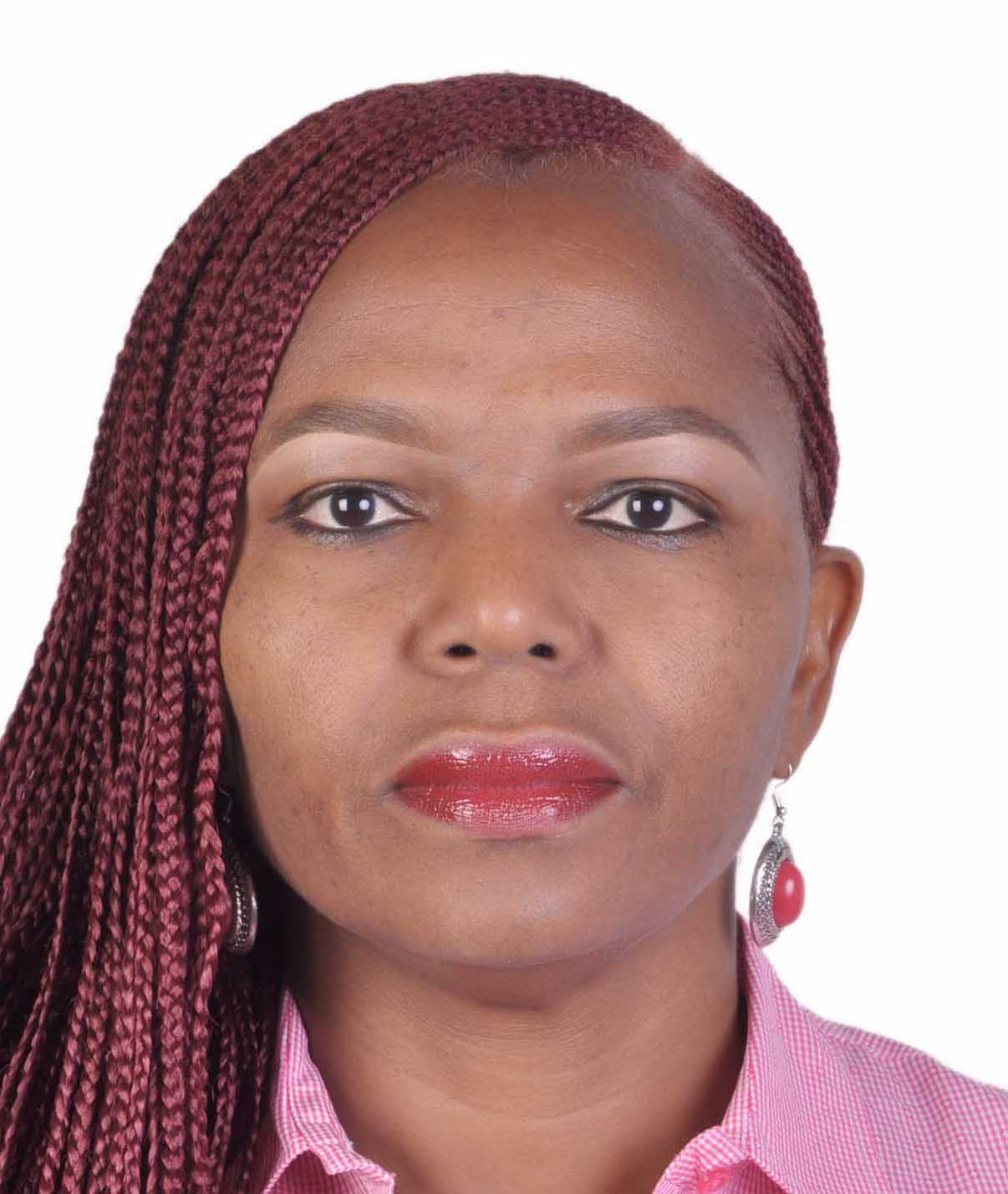
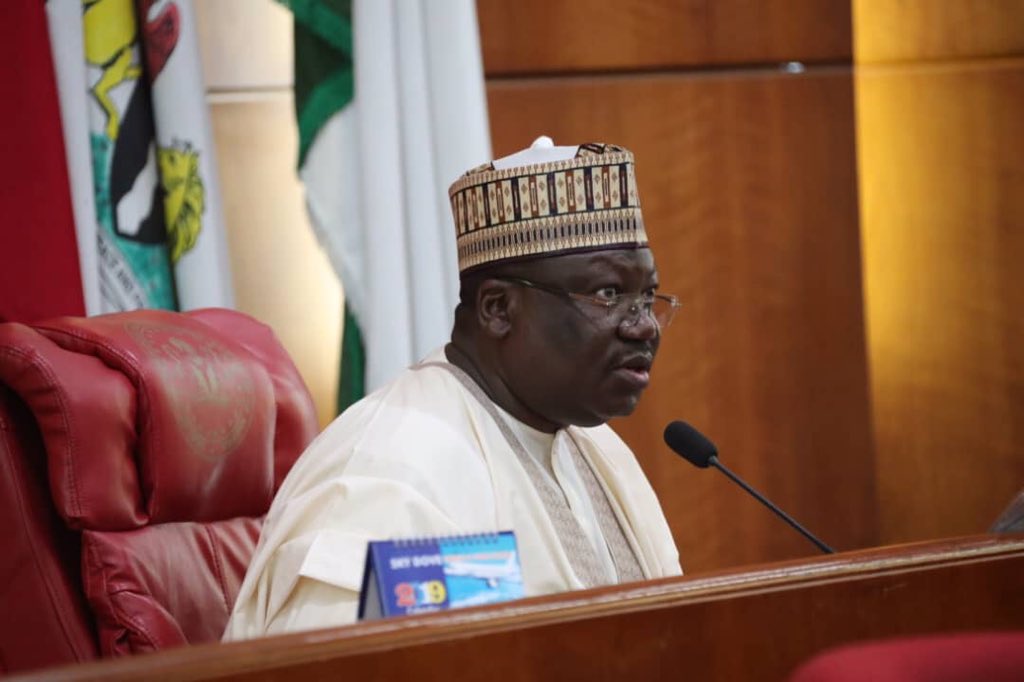
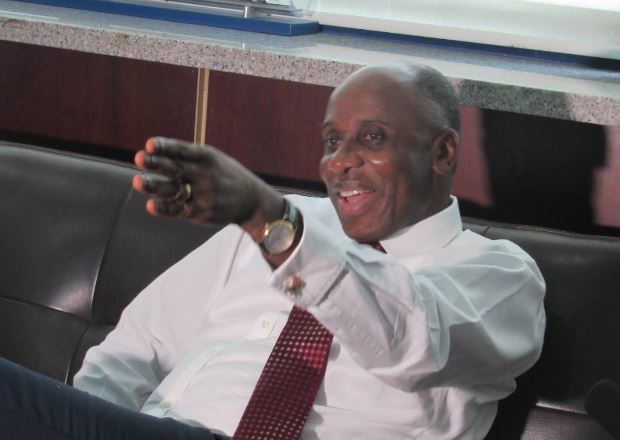
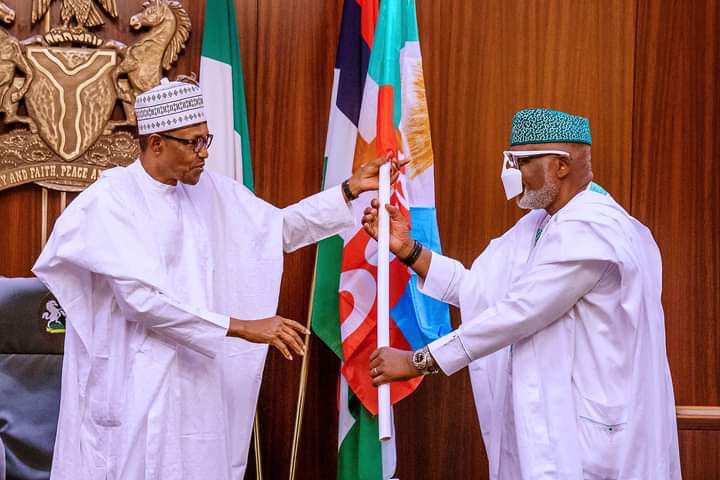
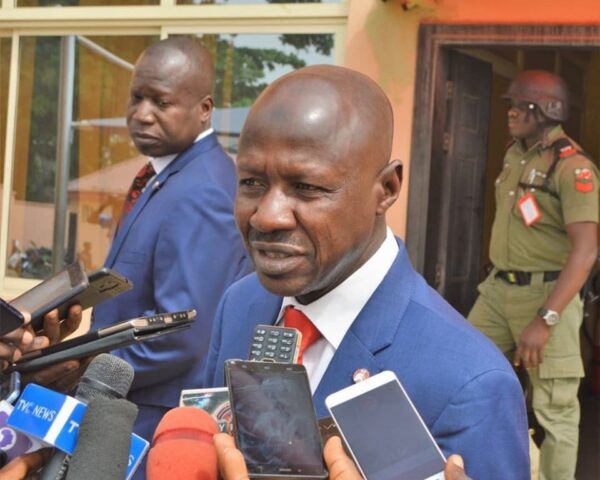

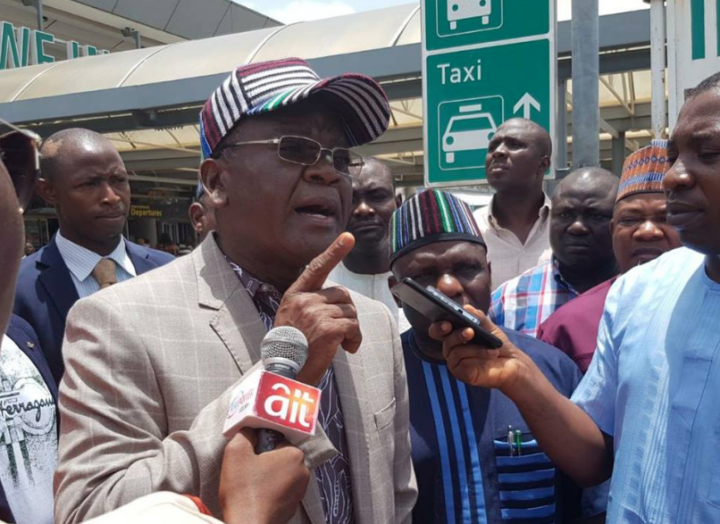
Onoshe has spoken poignantly to the President’s 60th Independence Day Speech with sharpness and incontrovertible truths!
Now please stand up if indeed you’re a true Nigerian desperate and hopeful of REAL change.